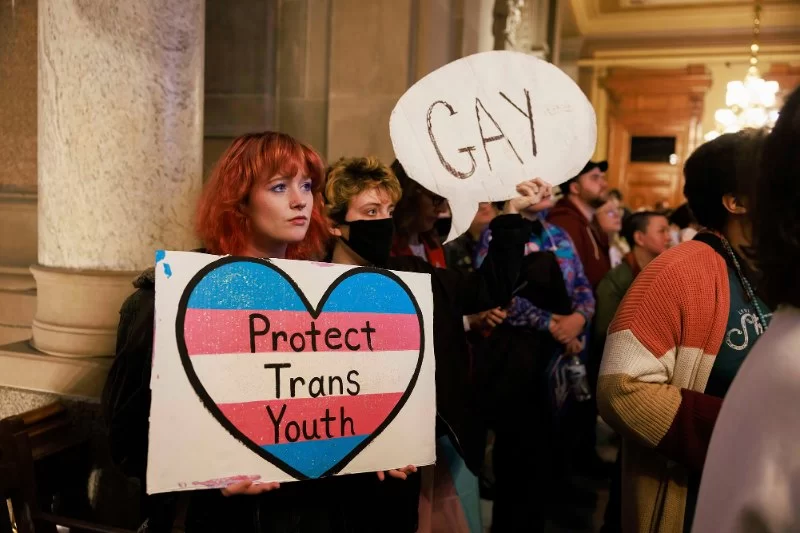
- transgender-rights-evolving-in-legal-context
- how-state-law-restrictions-impact-transgender-communities
- real-cases-highlight-legal-challenges
- navigating-legal-options-and-protections
- supporting-trans-rights-through-legal-resources
1. Transgender Rights: Evolving in Legal Context
Transgender rights have become a defining civil rights issue of the 21st century, and with growing awareness, there has been significant momentum toward legal recognition and protection. However, the landscape remains complex. While federal protections have expanded in some areas—like healthcare access and workplace non-discrimination—state-level restrictions often create conflicting realities. Understanding the current climate of transgender rights and state law restrictions is vital for individuals, allies, legal professionals, and policymakers alike.
At the core, this issue revolves around a person's ability to live authentically—accessing healthcare, education, housing, and employment without fear of discrimination or violence. However, legal protections vary widely by state, making it a patchwork of experiences across the U.S.
2. How State Law Restrictions Impact Transgender Communities
2.1 Healthcare Access and Transition-Related Services
Several states have passed legislation restricting access to gender-affirming care, especially for minors. These laws not only ban procedures but also criminalize healthcare providers, creating chilling effects. For families with transgender children, this can mean uprooting their lives to move to more supportive states.
2.2 Identity Documentation and Legal Recognition
Changing gender markers on IDs or birth certificates is a basic right that can drastically impact daily life. However, not all states make this easy. In some cases, transgender individuals must undergo surgery or obtain court orders, creating financial and psychological barriers. These requirements conflict with medical consensus that such documentation should reflect lived identity, not surgical status.
2.3 Education and Public Accommodations
School policies on restroom access, sports participation, and pronoun use have also come under state-level scrutiny. In certain states, transgender students have been barred from using facilities that match their gender identity or participating in gender-aligned sports teams, which can lead to bullying, isolation, and academic challenges.
3. Real Cases Highlight Legal Challenges
3.1 Gavin Grimm vs. Gloucester County School Board
One of the most well-known legal battles was fought by Gavin Grimm, a transgender student in Virginia who sued his school board for banning him from the boys' restroom. The case ultimately reached the Supreme Court and became a landmark in the fight for trans rights in education. While his victory set a precedent, it also revealed the long, difficult road many must travel for justice.
3.2 Arkansas's Ban on Gender-Affirming Care for Minors
In 2021, Arkansas became the first state to ban doctors from providing gender-affirming treatments to minors—even with parental consent. The law was met with widespread protest and is currently being challenged in court. For affected families, it has meant splitting up households or seeking underground care options, posing emotional and financial risks.
4. Navigating Legal Options and Protections
4.1 Know Your Federal Rights
Despite state restrictions, federal protections exist under Title VII and Title IX, as interpreted by the Supreme Court in Bostock v. Clayton County. These decisions affirm that discrimination based on gender identity is a form of sex discrimination under federal law. Understanding where federal protections apply can empower transgender individuals to push back when rights are denied.
4.2 Legal Advocacy and Representation
Facing legal battles alone can be overwhelming. That’s where legal advocates step in. Law firms and organizations specializing in civil rights, such as ESPLawyers, can provide tailored guidance. Whether you need help with a discrimination claim, name and gender change, or defending access to healthcare, having expert legal support makes a measurable difference.
4.3 Community-Based Legal Clinics
Many urban areas host LGBTQ+ legal clinics offering pro bono services. These clinics are lifelines for low-income individuals who need immediate help. From document preparation to court representation, they fill the gap in legal access created by systemic inequality.
5. Supporting Trans Rights Through Legal Resources
Transgender rights and state law restrictions will continue to evolve, and staying informed is critical. Whether you are directly impacted or a concerned ally, knowing where to find help matters. Platforms like ESPLawyers not only provide legal solutions but also contribute to broader advocacy efforts. Their involvement helps ensure the law moves forward—not backward.
Everyone deserves to live without fear, with access to healthcare, education, and employment that reflects their identity. Supporting trans rights isn’t just a legal issue—it’s a human one. With the right resources and awareness, we can all play a role in building a more just society.








